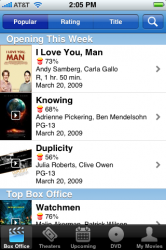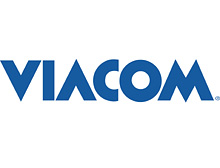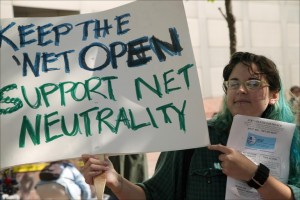Weekly News Roundup (23 March 2014)
A fairly short, in text rather than in content, WNR for this week. Just didn’t feel like writing too much, and I suspect you probably don’t like reading that much either.
Let’s get it done.
![]()
Well that was tedious. The long running legal battle between Viacom and Google has finally ended, both sides having just signed an undisclosed settlement deal. Seven years in the running, it brings to the end of one of the most contentious copyright legal battles of recent time, all started when Viacom sued YouTube for $1 billion back in 2007.
Of course, the YouTube of 2007 (and actually earlier than that, since a big part of the lawsuit hinged on what had happened at YouTube before Google took over in 2006) is a lot different to the YouTube of today. Many of the things Viacom had wanted back then, are now the norm, like ContentID scanning and account bans for excessive copyright abuse.
And while piracy still exists on YouTube, the positives of the platform for content publishers like Viacom outweigh the negatives, and it’s just silly to continue this feud any longer. Which is basically what both companies have jointly said following the announcement of the settlement.
——
A good idea nearly ruined by bad execution. Nothing new, and certainly not when DRM is involved. So when Warner Bros. decided to go with UltraViolet/Flixster as the digital platform of choice for the Kickstarter backed Veronica Mars movie, backers, and investors of the film, weren’t happy.

Veronica Mars fans and Kickstarter backers don’t like Flixster as the choice for the digital version of the movie
While the DRM-free concept is a popular one in the crowdfunding scene, Warner was never going to release Veronica Mars DRM-free. This meant that Warner went with what they know, or rather, what’s good for them, and this meant the same UltraViolet/Flixster setup they use for their disc products. But the Warner owned Flixster is not as commonly used as iTunes or Amazon, and it’s not as compatible on devices that users primarily use. This left many backers with a digital download they can’t watch on their Apple TV or Roku, and the negative comments poured on on the movie’s Kickstarter page.
UltraViolet/Flixster related hatred has made the news before, and just like last time, Warner has had to backtrack and offer monetary compensation for affected users. This time, users will be refunded the cost of their iTunes or Amazon purchase if they had a previously complaint about the Flixster version.
It’s not uncommon for studios to screw over their customers for their own shortsighted benefit, but in this case, the Kickstarter backers are the actual investors of the movie, and so Warner’s screw-up is less forgivable this time.
——
An update to last week’s story about Popcorn Time – the software has been brought back from the dead thanks to torrent site YTS, and installers and source code is available on their GitHut page. It’s impossible to really kill an open source software, as this latest development proves.
![]()
Netflix’s CEO Reed Hastings has weighed in on the net neutrality debate in the wake of the company’s high profile deal with Comcast. Hastings wants more government action on the issue of net neutrality, or he fears that ISPs will have too much power to charge ever increasing “tolls” on bandwidth hungry companies like Netflix.
While the Netflix/Comcast deal skirted the issue of net neutrality by dealing with the interconnect between the two companies, as opposed to preferential treatment of traffic in the last mile, the end effect may be the same, says Hastings. With ISPs consolidating market share, and the courts backing them via a silly free-market argument, net neutrality is needed more now than ever. Or, as Hastings warns, ISPs will be able to charge whatever they want from companies like Google or Netflix, just simply because they can.
They can because while there is nominally competition in the market place, most users choose to bundle their services together, which means there is less incentive and capability for them to change providers on a whim. This effectively means there is very little free-market competition to prevent ISPs from gouging companies like Netflix (whether it’s via peering agreements, or last mile hijinks), and without competition, the court’s argument that net neutrality regulation isn’t needed is an invalid one.
Netflix’s only course of action is to put up the cash to solve the problem, which is good for their customers, but eventually the cost will be passed on.
Rhetoric and ideology aside, the truth is that a free market needs strong regulation in order to ensure it remains free. And this is why a strong net neutrality rule is needed, or us consumers will ultimately be the ones being out of pocket.
Told you it was short, as we reach the end of another WNR. Enjoy what’s left of your weekend, and have a good week. See you in seven days.


